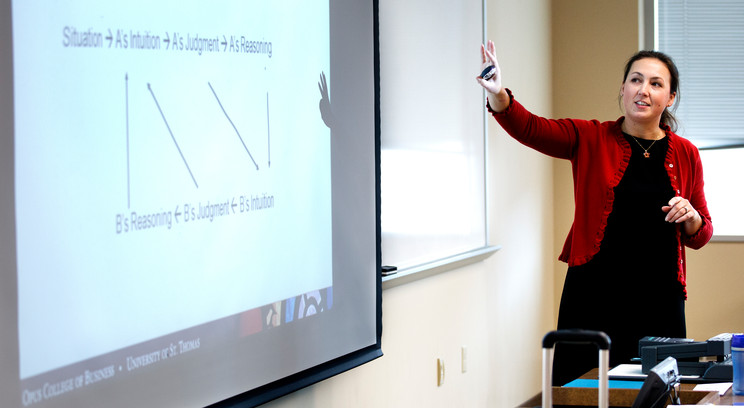If you have nothing to hide…then why are you so upset if Facebook shares some information about you with the government? A little trade-off of privacy for safety can’t really hurt that much, right?
Debating Government Surveillance: Privacy v. National Security
Oct. 3, 5 to 7 p.m.
The School of Law is bringing internationally known experts in the fields of privacy and national security to debate privacy v. national security. The even will take place at Schulze Hall inside the Opus College of Business. Don Shelby, former WCCO television news anchor and radio personality, will serve as moderator.
Learn More and Register»
And in any event, what you share on Facebook is essentially public information, so why raise a fuss now that the government wants a look too (after your classmates, employers and corporate America already had theirs)? Yet, despite such arguments and claims many people still feel uneasy or outright outraged about the recent reports that Facebook and Google might have discussed access to user data with the NSA or already given access when ordered to do so under the Foreign Intelligence Surveillance Act.
Why is privacy that important to many of us even though we put more and more information about ourselves out there for others to see? Researchers focused on privacy have argued that privacy is essential in the development of self-identity and individuality. Privacy provides opportunities for self-assessment and experimentation. Particularly on social media sites, individuals decide and test out who they want to “be” and how they want relationships to develop and unfold. Being able to control who sees what and how much information helps protect these different identities and spheres of relationships. Understanding privacy as control over how we present ourselves and how we are perceived by others sheds some light on the uneasiness we might feel when we hear of unauthorized access to our information by others, including the government.
We might wonder: “Will the government understand my jokes or ironic comments about some topics in the right way? They were only meant for my group of college friends who understand my sense of humor! Will they think I have the wrong sort of ‘friends’? Will they look at my ‘likes’ and perhaps think I am a security threat?” I have no idea nor can I set things straight!
A recent survey of UST undergraduate students has taken a closer look at the privacy expectations of Facebook users. The results confirmed that the control individuals have over what information about them is being accessed—and particularly how that information is being used—plays an important role in whether individuals feel their privacy has been violated or not. For example, students who took part in the study expressed more concern regarding privacy when information about them was accessed by someone who did not use their own account and “borrowed” access from somebody else, or if that information was purchased from Facebook. In essence, if a user sets privacy settings for a certain group of friends or even marks some information private altogether, bypassing such specific setting (such as the government presumably did when requesting access) means loss of control and carefully developed boundaries.
Another finding of the study indicated concerns about how information obtained was used. If it was used to develop business or make hiring or credit decisions, students were more likely to consider their privacy violated than when the information was just shared with a family member. Particularly, those students who spend a lot of time on Facebook and had large number of Facebook friends were generally more sensitive when information about them was accessed compared to those students for whom Facebook was not a significant part of their lives.
So, given what we know about what drives our need for and perception of privacy, how might we respond if someone dismisses concerns about unauthorized and undisclosed access to our data with the common statement, “if you have nothing to hide”?
One might try: “I might not have anything to hide from my friends, but I might want to hide some things from YOU.”
Katherina Glac, Ph.D., assistant professor in the Ethics and Business Law Department, is researching privacy expectations of Facebook users.







